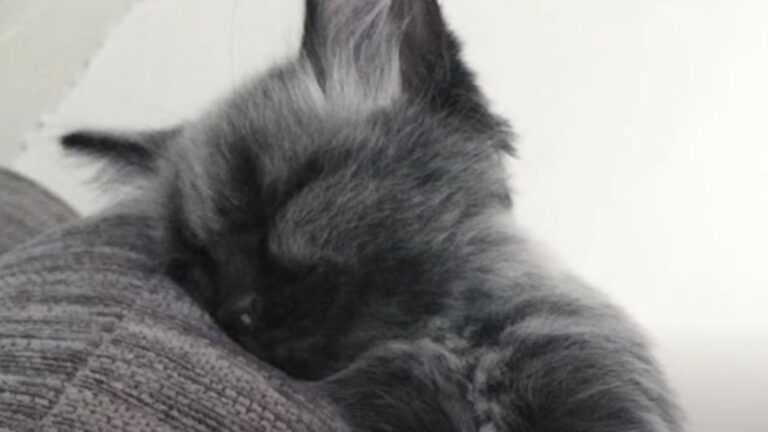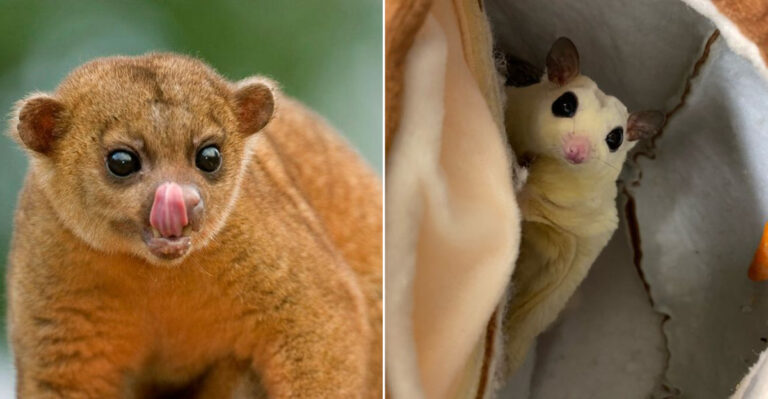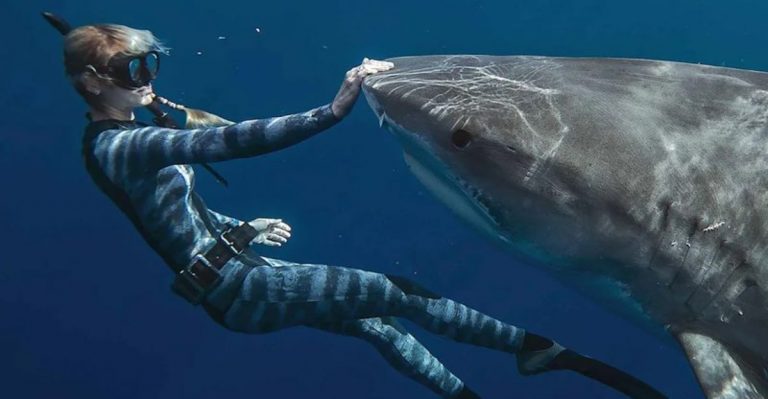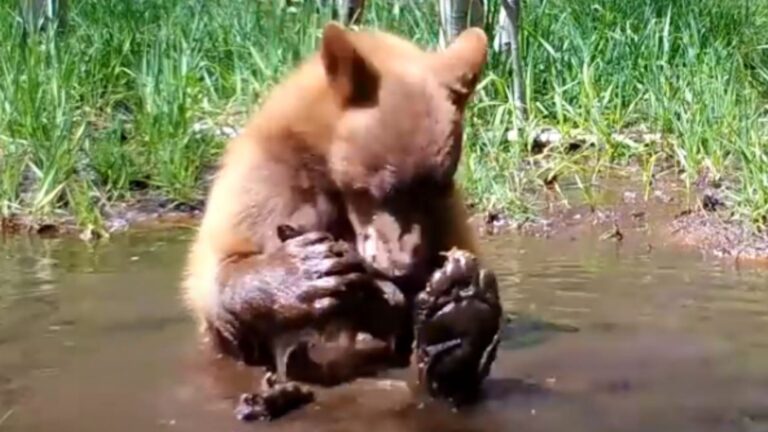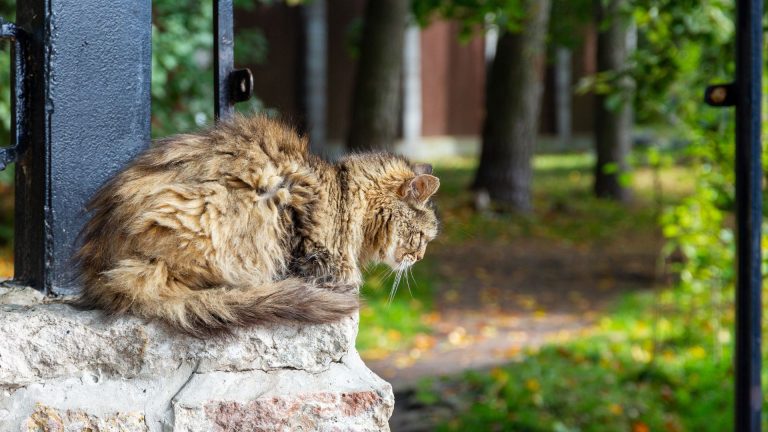Why Are Scottish Fold Munchkin Cats So Popular?
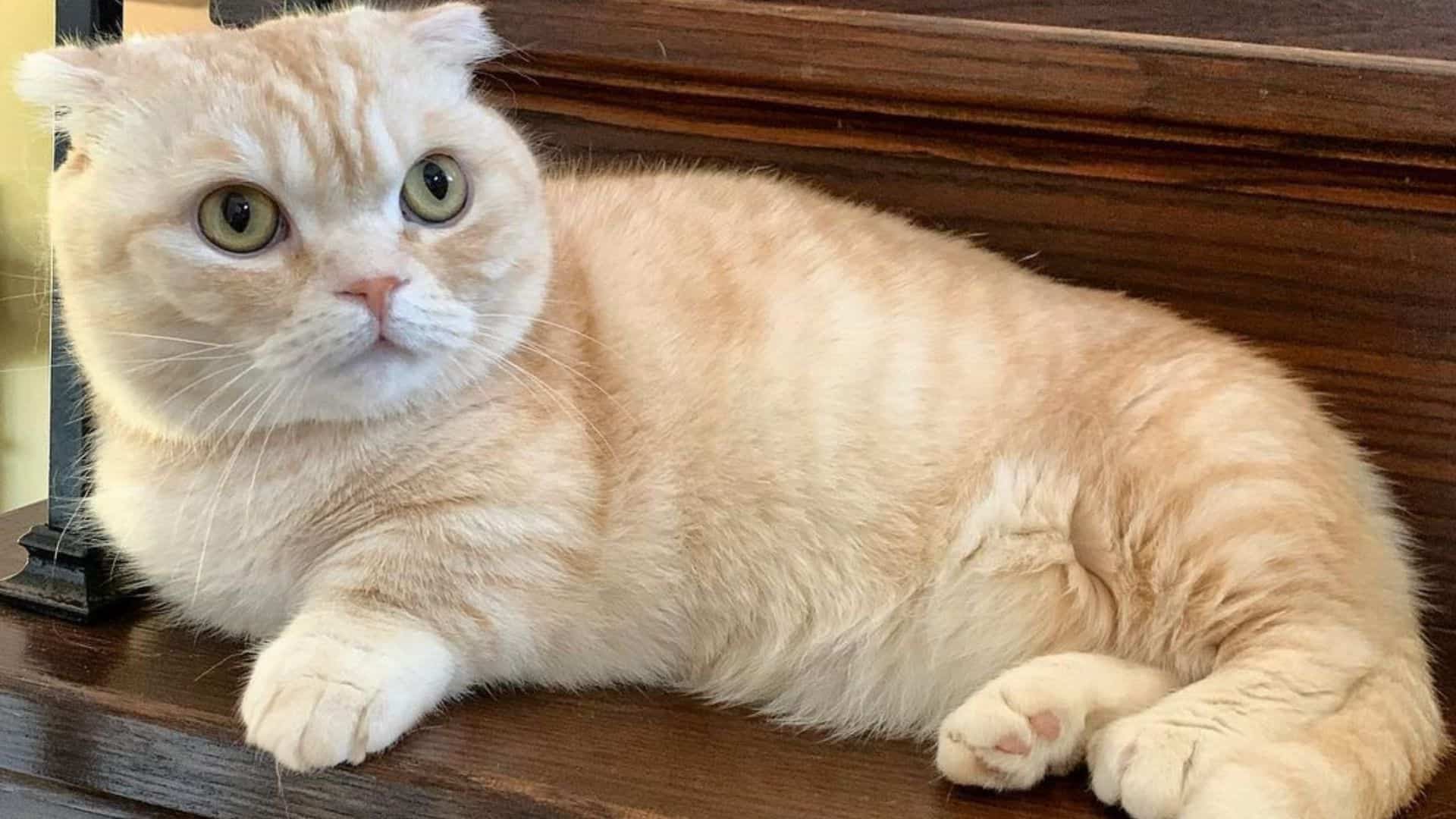
You’ve heard of Scottish Folds and of Munchkin cats, but what is so special about Scottish Fold Munchkin cats? Well, as their name states, these increasingly popular kitties are the hybrid offspring of the two breeds.
A Scottish Fold Munchkin kitten inherits all the best and the cutest traits of its parent breeds. They are cute and small, their coats are soft, and their personalities are remarkable.
How are these cats as pets? Are they good for kids? Can they be left alone? If you want to know more, read on!
Info About The Scottish Fold Munchkin Cat
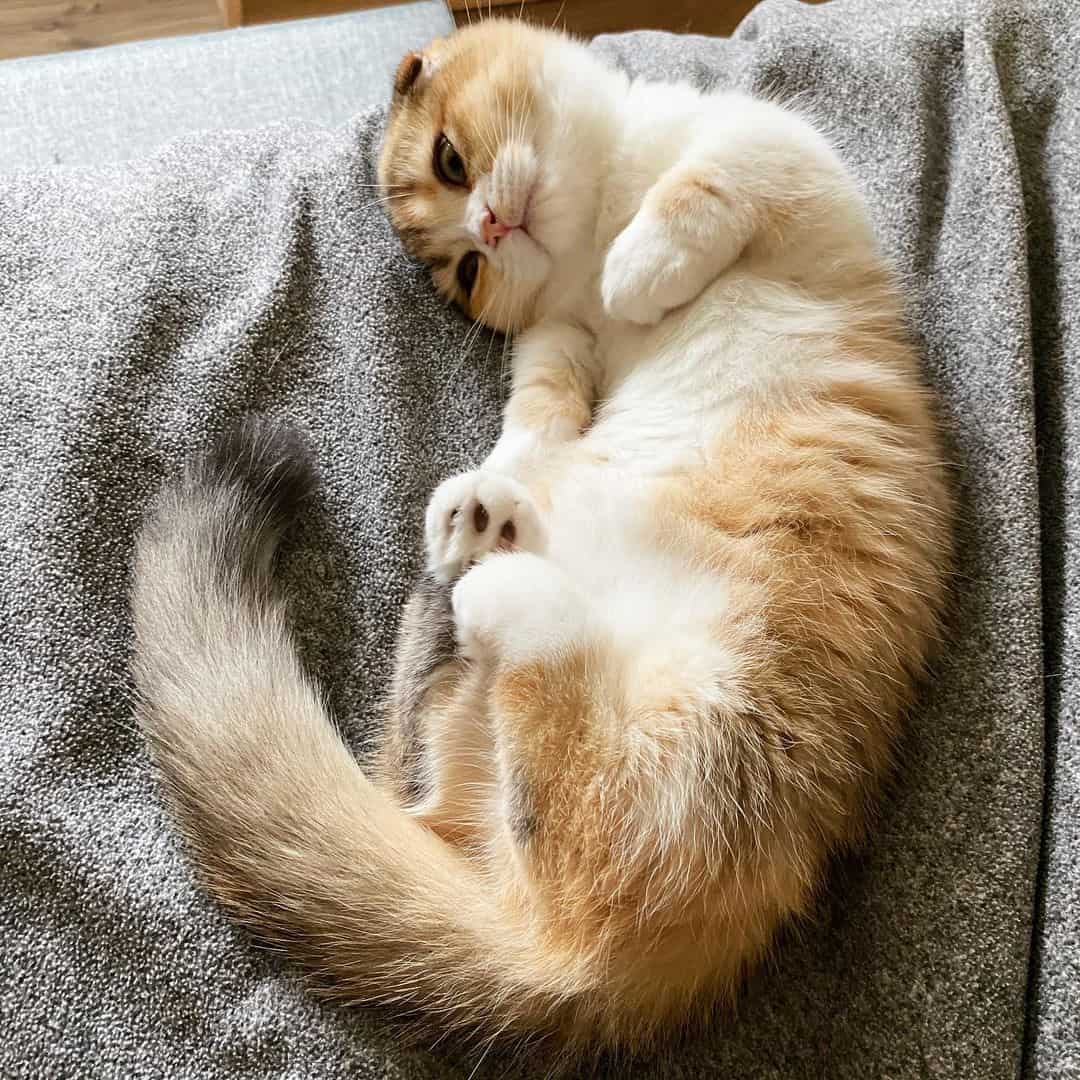
The name Scottish Fold Munchkin cat is self-explanatory. However, every cat breed is a story for itself when it comes to owning one.
What’s it like to own this mix-breed, how long do they live, and generally, what requirements do they have regarding their care? Read on and find out.
Origin
Breeders are constantly striving to create the most adorable cat possible by modifying some of the characteristics that already make cats cute.
Selectively breeding different cat breeds involves selecting the genes responsible for the cute features in each breed and producing a kitten that will inherit these desired traits. The short legs, folded ears, and rotund build are not accidental.
The parent cat breeds are responsible. The Scottish Fold Munchkin cat was first introduced in 1991. Let’s take a look at the parent breeds to get a better understanding of this cute cat hybrid.
Parent Breeds
The Scottish Fold Munchkin cat was developed by combining desired traits: Munchkin’s short legs with the adorable ears of the Scottish Fold.
TICA (the International Cat Association) has approved this hybrid breed as a test breed, and it is also known as the Scottish Kilt.
Munchkin Cat
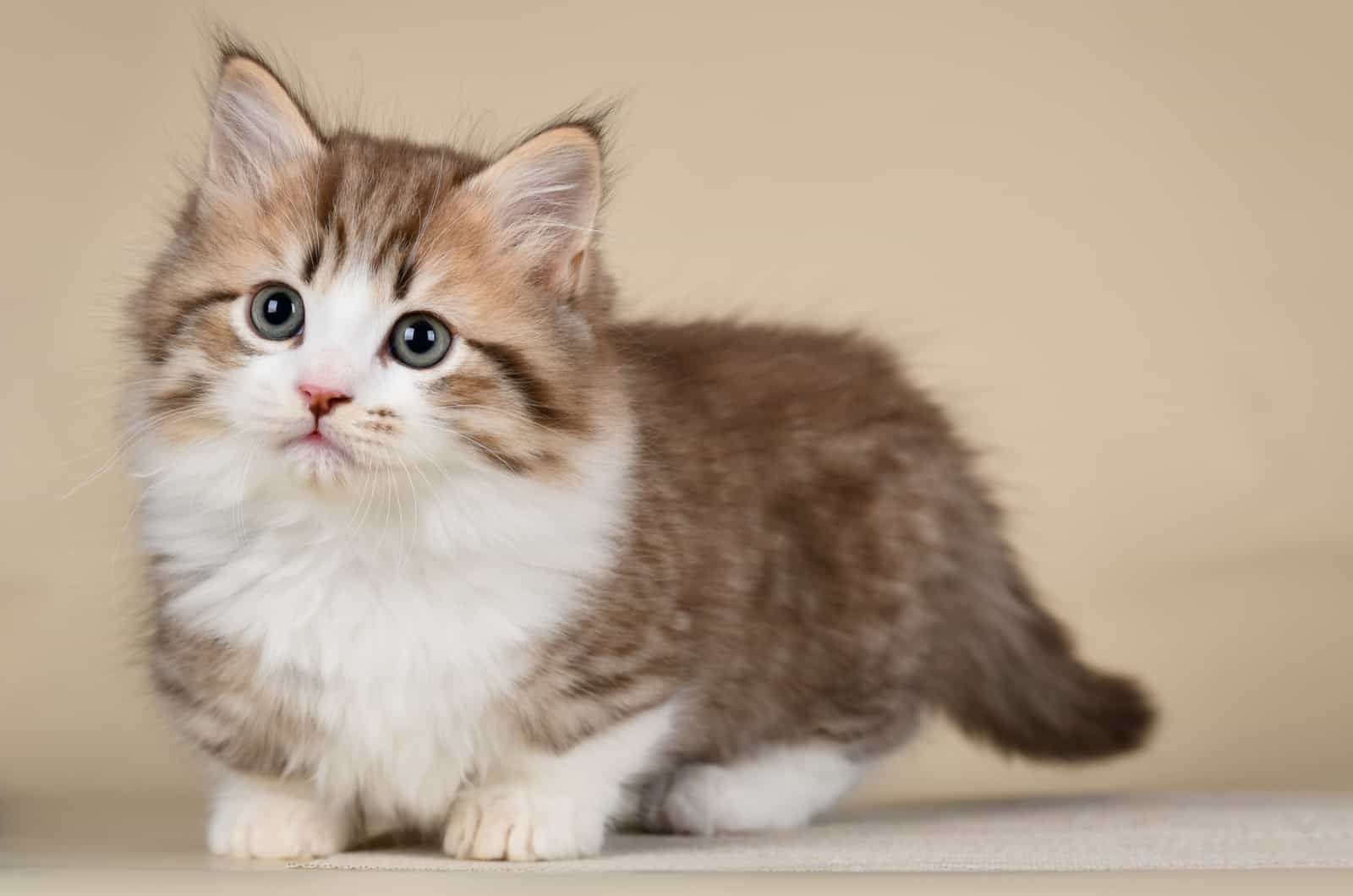
Munchkins are small to medium sized, playful, energetic, and affectionate cats. Many people are still unfamiliar with this dwarf cat breed, and TICA only identified them in the early 2000s.
They’re quite rare as well, which is why many people are still not aware of this breed’s existence. These kitties are uncommon due to the complexity of their breeding process, as they are bred to purposely produce a genetic mutation.
This means that the average price of a Munchkin cat is typically very high; depending on the breeder and pedigree, it can be as much as $4,000.
See also: 10 Short-Legged Cat Breeds – Munchkin & The Feline Gang
Scottish Fold Cat
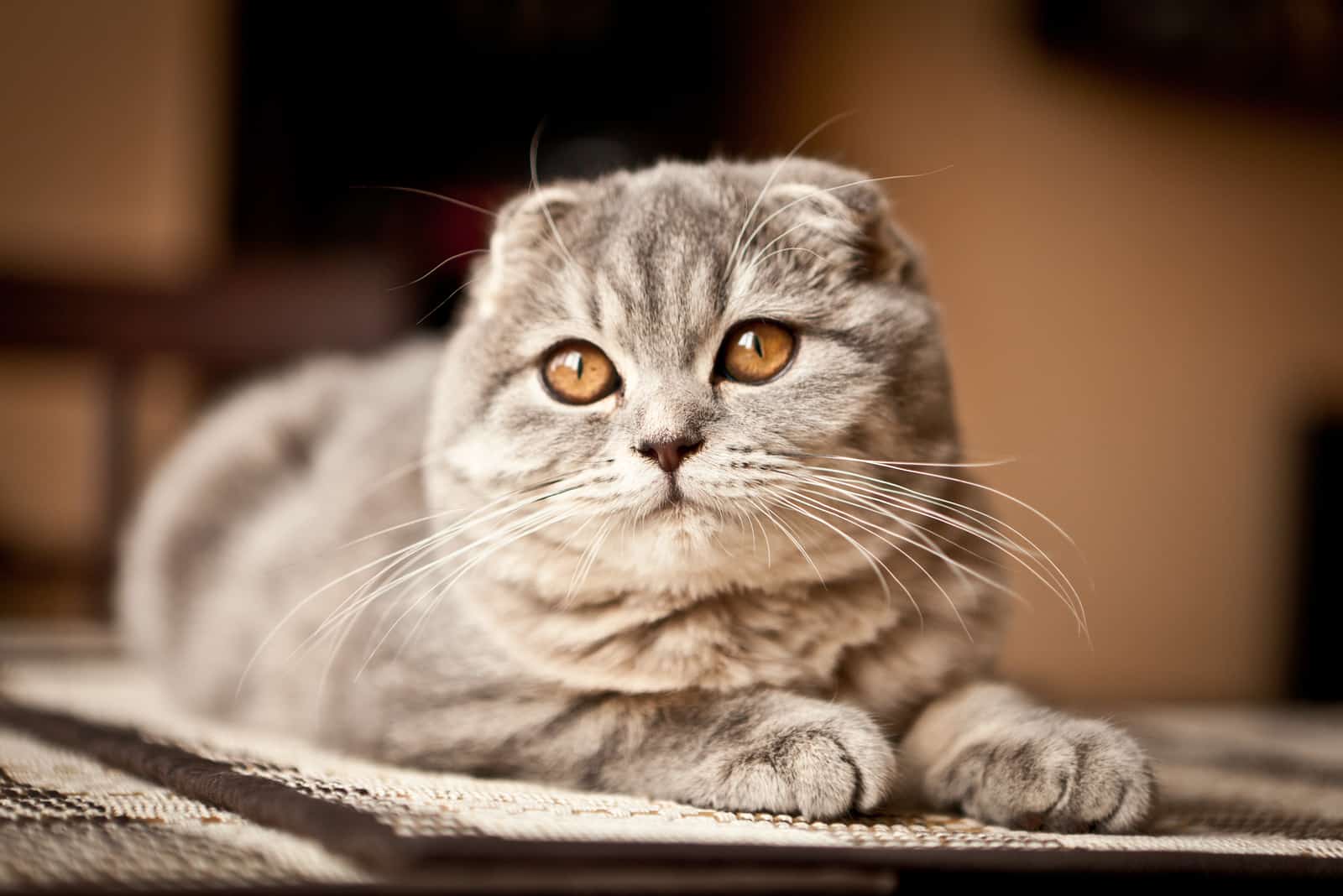
The Scottish fold cat is distinguished by its unique and unusually folded ears. This breed’s origins can be traced back to a feline named Susie, who had folded ears due to a genetic mutation.
They enjoy attention and cuddles to some extent but will retreat if they need their privacy. Scottish folds aren’t lap cats but rather cats who prefer to be near you. They are available in a variety of patterns and colors.
Size & Appearance
They are small, with females typically weighing 4 to 8 pounds and males 6 to 9. Scottish Fold Munchkins are typically seven inches tall, and their body length is usually equivalent to that of purebred Scottish Folds.
This mixed breed of cat has the following physical traits: short legs, round heads, folded ears, and a rotund build. Some cats’ ears have a single fold, while others have a double or triple fold. Triple-fold ears are popular in cat shows.
Despite their small stature, these cats are capable of running, jumping, and climbing. Depending on the parent cat’s traits, they can be either shorthaired or longhaired.
Personality
Scottish Fold Munchkin cats inherited the easygoing, affectionate, calm, and playful nature of their parent breeds as well.
They also form strong bonds with their owners, and most cat owners believe that these adorable little kitties are immune to sadness. These felines seem to be happy and in the mood to play all the time.
Behavior
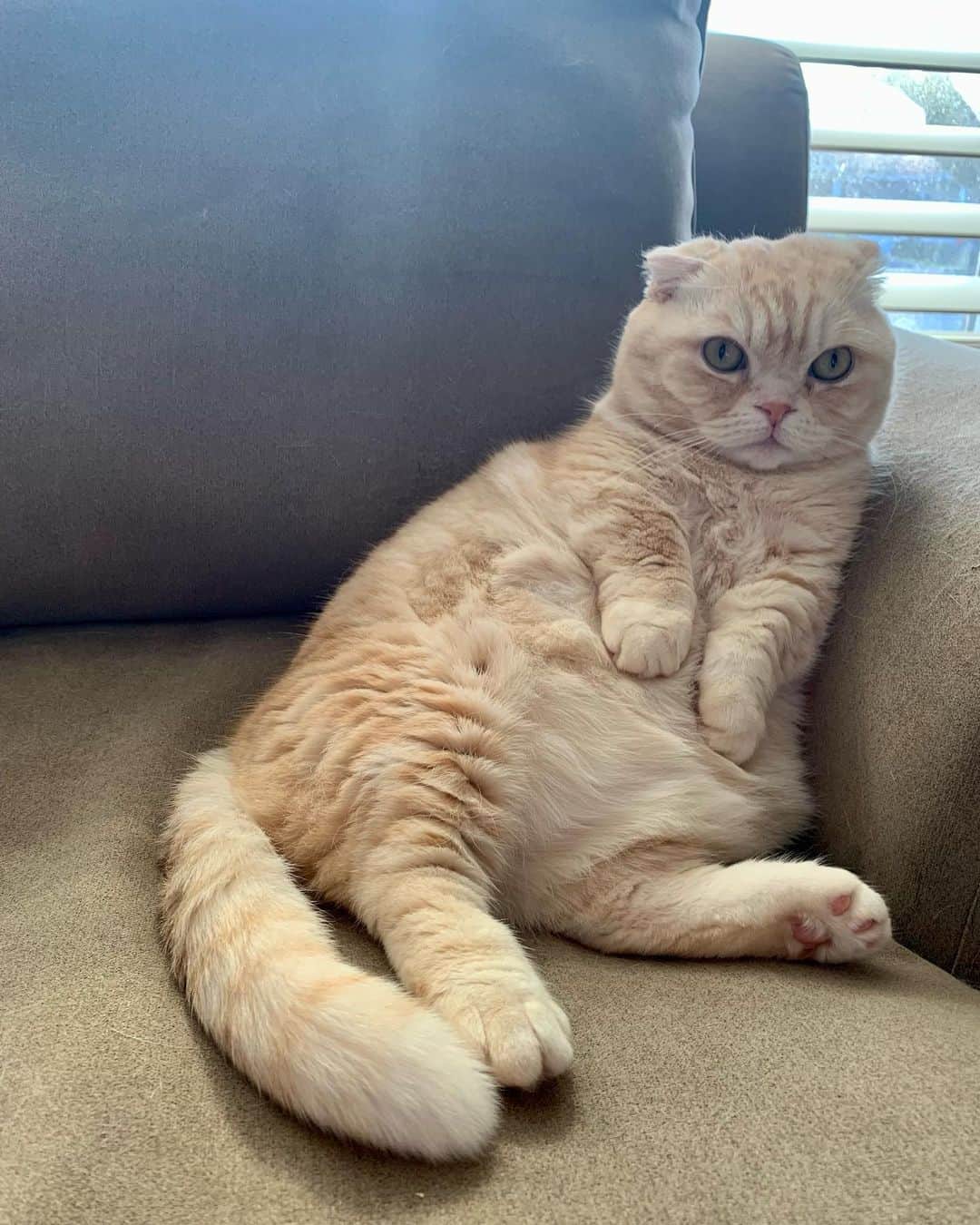
Given their light weight, they can make excellent cuddly and transportable cats. They make excellent family pets since they’re not prone to aggressive behavior, even in households with young kids or the elderly.
They are also ideal for multi-pet households because they get along well with other cats and dogs. Scottish Kilts are energetic, playful, and extremely clever.
As a result, they will enjoy toys and games that provide both physical and mental stimulation.
They are easily trained; you can teach them to play fetch, walk on a leash, and some owners even report that their little troublemakers even steal small things and hide them away.
If you leave them alone for too long, they may get lonely and melancholy, so be sure you’re prepared to offer them all the care and company they require before taking one home.
Check out: Top 18 Long-Haired Cat Breeds: Grey Stunners (With Pictures)
Grooming
Fortunately, taking care of a Scottish Fold Munchkin cat isn’t all that different from taking care of a standard Scottish Fold. Despite their little appearance, they are surprisingly agile and swift. They can sprint and jump like their larger counterparts.
However, there are a few traits of Scottish Folds that you should be aware of in order to provide the finest cat care for your Munchkin cat hybrid.
First, this kind of cat is predisposed to a common cat disorder known as Feline Polycystic Kidney Disease. Dry food can aggravate this, and some people suggest that it may enhance a cat’s risk of developing this disease at some time in their lives.
As a result, you should mainly feed your Scottish Fold Munchkin cat wet cat food, i.e. vet-recommended cat food.
You’ll also want to make sure there’s plenty to keep your cat entertained. Owners should bond with the cats and play with them since anxiety and sadness could occur if they do not receive enough attention.
These are incredibly affectionate cats who want to love and be loved by their owners! When you’re not around, make time to play with your cat and give them interactive electronic toys.
Aside from that, the care is the same as for any other cat. Groom as needed, offer adequate food and drink, and provide your kitty with a litter box!
Health Issues
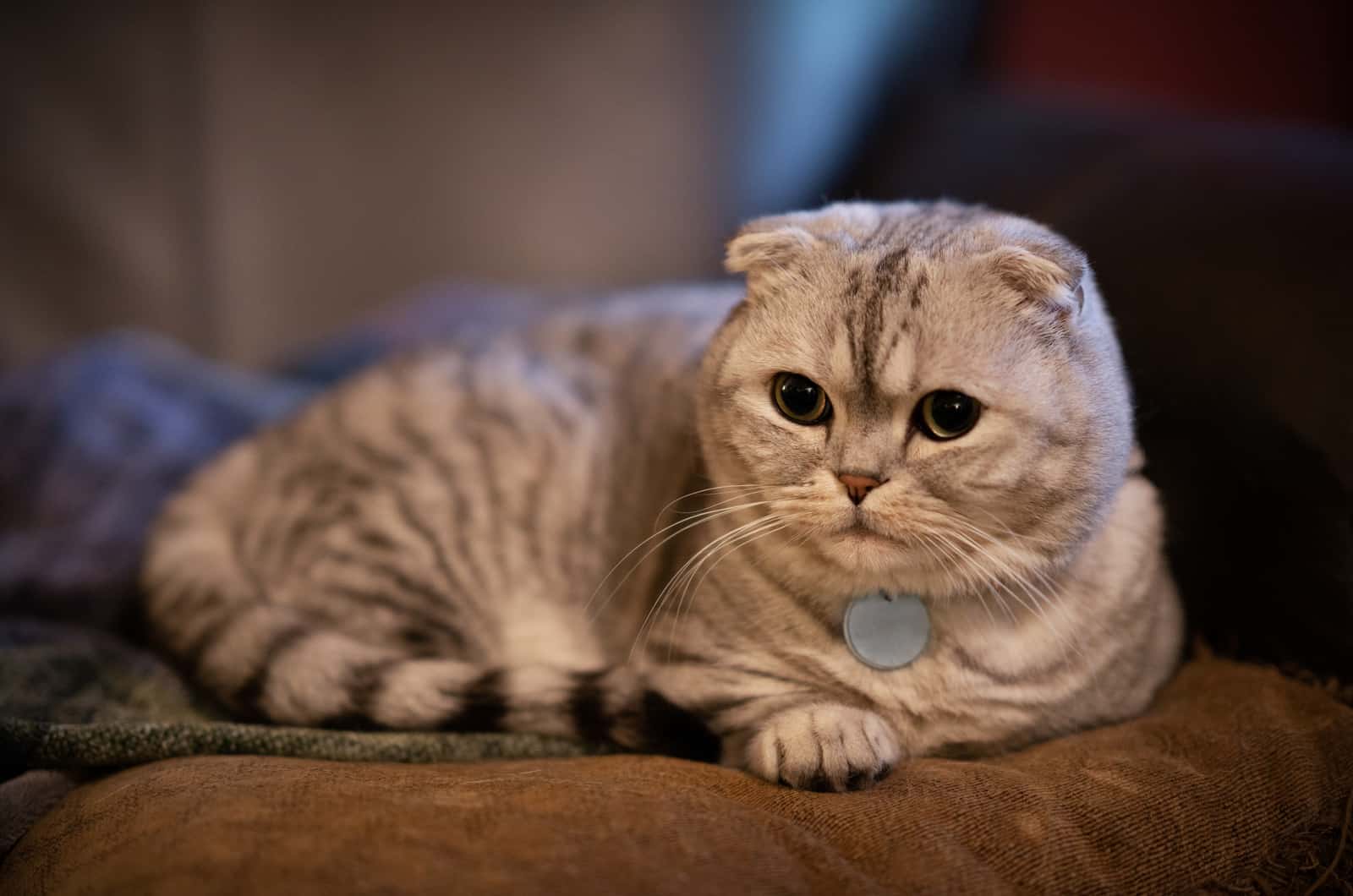
Scientists have cautioned that these cats are prone to being unhealthy due to genetic abnormalities that produce shorter limbs and movement issues.
Achondroplasia is caused by the same genetic defect that produces short back legs in cats and dwarfism in humans. Achondroplasia creates hollow chests, significant spine bending, and osteoarthritis in these cats, all of which can be painful.
However, there are many breeders and researchers that have known extremely healthy Scottish Fold Munchkin cats that lived up to 15 years, like any other “regular” breed of cat. Their average lifespan is reportedly from 11 to 15 years of age.
The following health problems are the most common ones that the Scottish Fold Munchkin cat is predisposed to.
1. Lordosis
Scottish Fold Munchkin cats frequently have lordosis due to their tiny rear legs. This illness can make movement difficult for the cats and create pain and suffering.
In severe cases, surgery may be necessary to resolve the problem. The disorder is caused by a genetic mutation that alters the development of the cat’s bones, resulting in unusually short hind legs.
There are a few things you may do to assist in reducing the severity of this ailment. Keeping the cat at a healthy weight will help decrease joint pain, and giving it enough activity and a comfy place to sleep in will also help.
A proper diet and frequent veterinarian exams can also help in preventing the recurrence of the problem over time.
2. PKD
Another condition that a cat with this gene may get is Polycystic Kidney Disease, in which cysts develop in the kidneys, rendering them unable to function properly.
Although this is more common in adult cats, kittens might inherit it as well. Despite the fact that it seems like a serious condition, some cats have it without showing any signs.
However, kittens may become bored with their typical routine and lose weight or vomit while unwell.
3. Pectus Excavatum
This is caused by an irregularity in the chest wall, which results in a depression or “sunken chest.” Pectus Excavatum may be found in both purebred and mixed-breed cats.
However, because of their unique body shape, it is more frequent in Scottish Fold Munchkin cats. This disorder is characterized by limited movement in the chest area, trouble breathing, and/or a bulge in the chest area.
Because of the odd chest shape, in extreme situations the afflicted cat may have difficulties eating and drinking.
Treatment for Pectus Excavatum varies according to the severity and can range from physical therapy to surgery.
If your Scottish Fold Munchkin cat exhibits symptoms of Pectus Excavatum, it is critical that they be checked by a vet as soon as possible.
4. Osteochondrodysplasia
The most visible external evidence of development is the ear cartilage folding, allowing the ears to tilt forward and give cats their distinctive look.
SFOCD, also known as Scottish Fold osteodystrophy, is a hereditary condition that affects a cat’s bones and cartilage.
Skeletal deformities like bent ears; short, inflexible tails; deformed feet and joints; and bone fusion are all symptoms of this illness in seriously affected cats.
Any cat with folded ears will have this ailment to some degree and will almost certainly suffer from arthritis.
5. Arthritis
Cats with the Scottish Fold dominant gene may develop arthritis, which damages their bones. They may have acute limb discomfort, resulting in limited movement and inflexible bones.
Some cats might have joint issues as early as four to six months of age. If one of the kitten’s parent cats has folded ears, and one has straight ears (as is the case with Scottish Fold Munchkin kittens), the chances of health issues increase.
This might mean they have difficulties with joint movement, especially jumping, which could result in discomfort. Because of their heredity, they may get arthritis sooner than other cats.
6. Eye Discharge
Some Scottish Fold cats could have flatter faces, which might result in some eye discharge. This isn’t typically a reason for concern, but keep a watch on their eyes just in case.
Exercise Requirements
Even with its short legs, the Scottish Fold Munchkin is lively and highly energetic. You may buy toys for them, such as feather wands, to keep them entertained. Most kitties are completely obsessed with feather wands.
To develop, this cat needs a lot of mental stimulation and socialization. This breed has a number of health difficulties, and vet expenditures can quickly mount.
The Scottish Kilt makes an excellent pet since it is smart and easy to teach. Just make sure to keep training engaging and entertaining because they can learn so many tricks.
Average Price
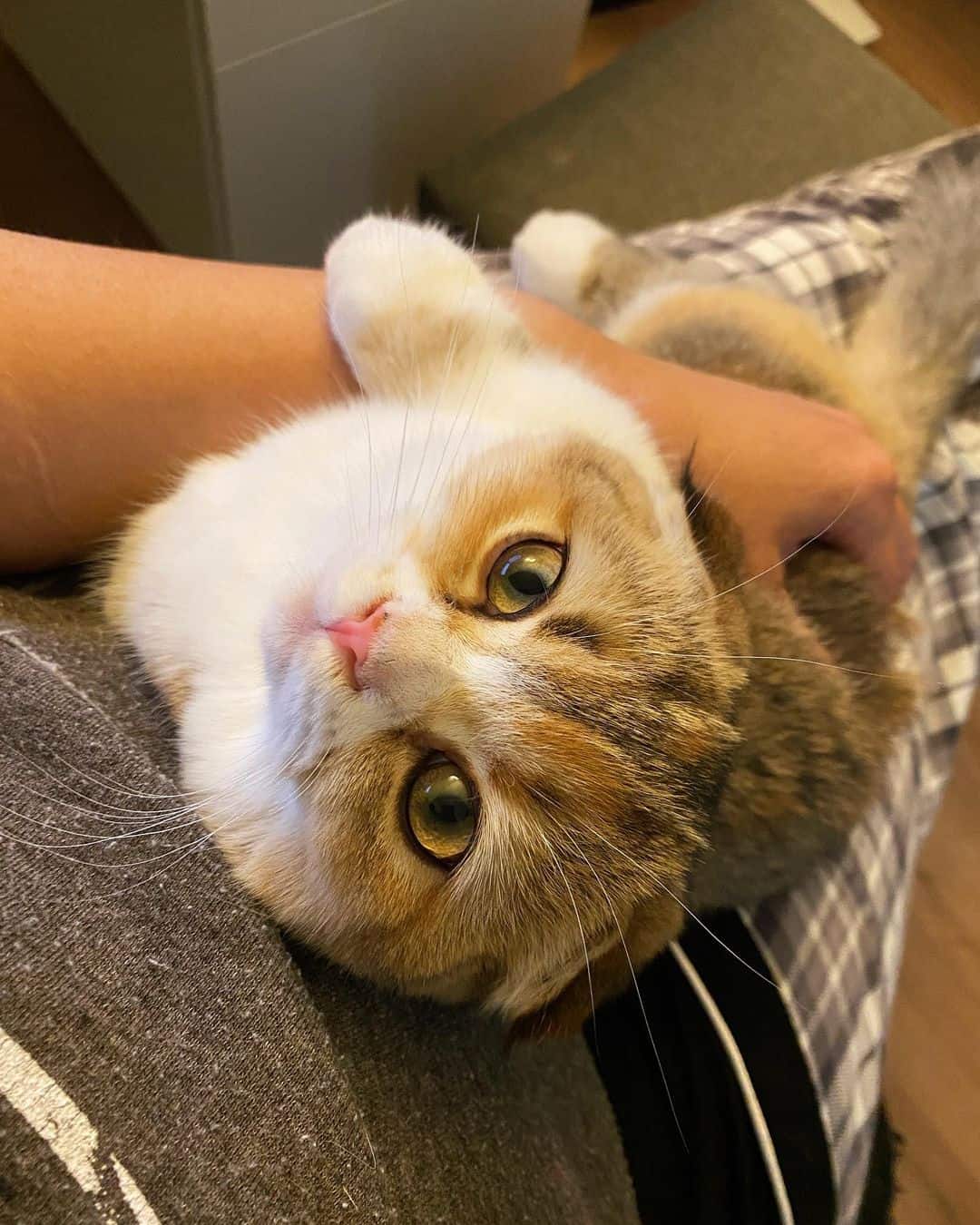
Unfortunately, this breed is uncommon. You’ll most likely need to visit a breeder or a cattery that has dwarf kittens, one of which will most likely be a Scottish Fold Munchkin cat, as they are one of the more prevalent dwarf breeds.
As far as I could find out, the price range of Scottish Fold Munchkin kittens ranges from $700 to $3500.
Before contacting a breeder, please check your local shelters and rescue centers to see if any of these cats are available for adoption. It’s unlikely, but it’s worth a try. If you’re lucky, you might be able to give one of these gorgeous cats a second shot at life.
See also: Top 20 Grey And White Cat Breeds We Absolutely Adore
Closing Thoughts
In summary, Scottish Fold Munchkin cats make great family pets. They are extremely adorable in appearance, and their personalities are perfect. They resemble their parent breeds, both in appearance and temperament.
Small and cute, sweet-tempered and independent, as much as they’re affectionate and loyal, these kitties will definitely make your home warmer and your heart fulfilled.
Always look for kittens in your local shelter because it’s better to save a cat and give it an opportunity to live a new life than to buy a new one. However, if you can’t find a suitable cat in a shelter, look for reputable and registered breeders.
Scottish Fold Munchkin cats are quite rare and usually hard to find. Search for registered breeders as they’ll provide your kitten with the best care as well as health guarantees, vaccines, neuter agreements, and so on.Ethical and registered breeders focus primarily on the cats’ health, and that’s the most important aspect.

